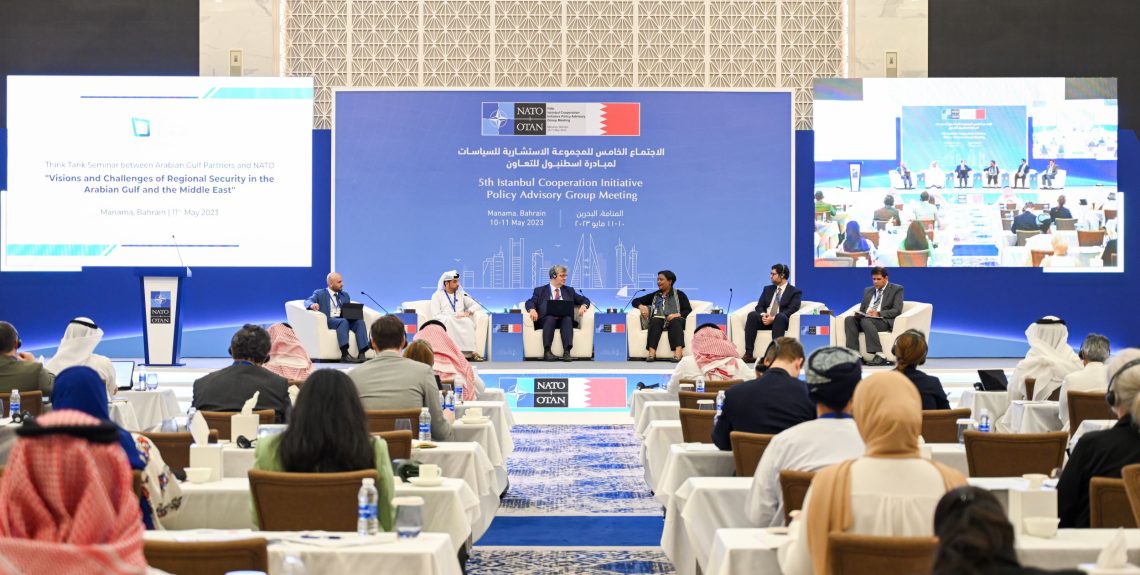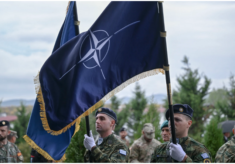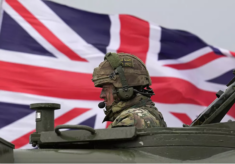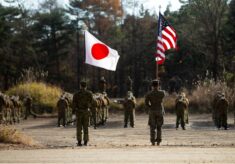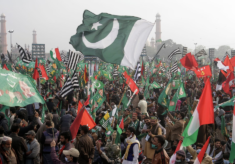The discussion with the partners in the Indo-Pacific region (Australia, Japan, New Zealand, South Korea) tends sometimes to overlook other important partnerships in the same region, namely the Istanbul Cooperative Initiative, and some potential ones with the Gulf Cooperation Council that gathers the four ICI countries (Bahrein, Kuwait, Qatar, UAE) plus Oman and the pivotal Kingdom of Saudi Arabia.
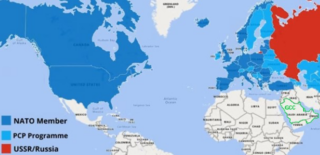
The strategic context of a possible collaboration between the GCC and NATO has a natural dimension in which the Gulf and the Arabian Peninsula have to be considered, namely the Indian Ocean for obvious maritime, economic, political and historic-cultural reasons, dating back some millennia. This ocean is undergoing a slow but visible strategic transformation because, since the battle of Plassey (1757) and the fall of Mossadegh (1953, 28 Mordad coup) the value and sense of this space was determined by dominant naval powers. With Plassey, Great Britain started asserting its dominance over the Indian Peninsula, first with the British East India Company and then directly through the Crown. This domination definitely faded with Operation Ajax, a coup d’etat against the fledgeling Iranian democracy, ushering the era of US predominance in the region, just eight years after India’s independence (1947).
Today, after 2004 (28th of June, US hand-over of control and sovereignty to an interim Iraqi government), the strategic nature of this ocean it is noticeably determined also by regional actors (among which India and Iran) and it is increasingly contested between major powers. It is easy to understand that, even if we still use it, the concept of Middle East is completely obsolete: it was middle when it was between imperial London and viceroyal Bombay. This time has definitely passed away and Klemens von Metternich would say presently “Der Mittlerer Osten ist nur ein geographischer Begriff”, as it was told of Italy; North Africa, Levant and Gulf have of course reciprocal connections, but they are distinct subregional areas in the wider strategic Indian Ocean multidimensional geopolitical network.
This Ocean faces serious emerging challenges among which climate change is a paramount one (it is the fastest warming ocean, there is water and desertification crisis in the Arabian space and beyond, pollution is high and sea levels are rising, jeopardising little archipelago countries and important ports). Naturally the war in Ukraine is important for very concrete reasons, but it is not the only concern, because major power competition and tensions are unfortunately a fact, reverberating from the Pacific to the whole world, with the perception of a possible world war.
The abovementioned context implies that the Gulf Region as a whole has to face in the short- medium-term formidable challenges, namely:
Climate change
Water scarcity
Migration pressures
Food security
Economic restructuring (de-globalisation and protectionist pressures)
Possible new epidemics or pandemics
Deep social change
Among the serious challenges one can mention:
Nuclear and missile proliferation
Energy security
Maritime security
Regional conflicts
Trafficking, organised crime, terrorism
Great power competition
It is evident that individual countries, no matter how well resourced, are unable to face successfully these challenges and that multilateral organisations are more conducive to implement viable and shared solutions. In the past and in other contexts, relying on a single critical security provider could be a solution, but time and again experience has shown that single-sourcing may have serious consequences, if the relationship wears down, no matter the political and cultural precedents. Experience has also shown that mechanically reproducing mechanism that function in one context does not work: the CENTO (Central Treaty Organization, 1955-1979, UK, Turkey, Iraq, Iran, Pakistan), a regionalised copy of NATO, was ineffective.
The recent changes in regional politics, like the normalisation accords and the Iran-Saudi agreement offer a good opportunity for closer relations between GCC and NATO for cooperative security and crisis prevention and management, an important step forward vis-à-vis standard crisis management. NATO has almost three quarters of century of experience in managing multinational security in order to ensure overall stability and it can provide a new menu of cooperation to the GCC, who has already the authority and competence on regional security.
The main political-military element of NATO during all these years, especially during the Cold War, is based on the so-called Harmel doctrine. Pierre Harmel, a Belgian baron and former of foreign minister, initiated the in 1967 the seminal “Report of the Council on the Future Tasks of the Alliance” or the “wise men report”. The main message of the report may be resumed effectively in two words: deterrence and dialogue. We have done this with USSR, who at the time was our “cold” enemy, while many countries around the world experienced a real Third World War; we have to keep steadfastly to this successful binomial also now as for the second time war rages in the European continent after 1945, with even more intensity compared to the Wars of Yugoslav Dissolution. NATO, despite some narratives, is a defensive alliance and does a lot to prevent dangerous escalations, because it will continue on the basis of deterrence and dialogue also in future.
Luckily the ICI, founded by the then NATO Deputy Secretary General Alessandro Minuto-Rizzo, has provided in time a solid collaboration basis with the member countries and in future with the GCC. The Kuwaiti based NIRC (NATO-ICI Regional Centre) has become an important military education hub in the area, but it is high time to seriously revamp the collaboration with the region, short-sightedly overlooked by approaches that do not take really into account a 360-degrees security, as stated in several Alliance’s summits. Thinking that the Southern Region is secondary has led NATO allies exposed to a flanking Russian infiltration from Syria to the Sahel and allowed other great powers to widen their political and diplomatic presence.
There are already detailed cooperation menus with the ICI, but they need to be reinvigorated and, in some areas, usefully opened to the collaboration of civilian entities. The following menu of subjects takes into account current regional priorities and marks the areas of civ-mil collaboration:
Arms Control, Disarmament and Non-Proliferation civ-mil
Air defence
Border Security and Control
Challenges of Modern Society civ-mil
Civil Emergency Planning and Disaster Preparedness civ-mil
Crisis Management and Prevention (especially maritime security) civ-mil
Deployability and Mobility (especially maritime)
Effective Engagement
Effective Intelligence
Law of Armed Conflict civ-mil
Logistics
Public Diplomacy civ-mil
Organised Crime Trafficking Terrorism civ-mil
In conclusion, the regional political conditions are absolutely ripe for an increased collaboration between the Alliance and the Gulf Cooperation Council and, in due time, a ministerial level meeting would be very useful. While some countries have understandably a different focus on the Gulf, compared to the past, for more pressing concerns in the Pacific, NATO can assist with cooperative security in reassuring partners and allies alike over a region that, due to the strategic developments in the Indian Ocean, has become even more important.
Alessandro Politi
Director of the NATO Defense College Foundation

